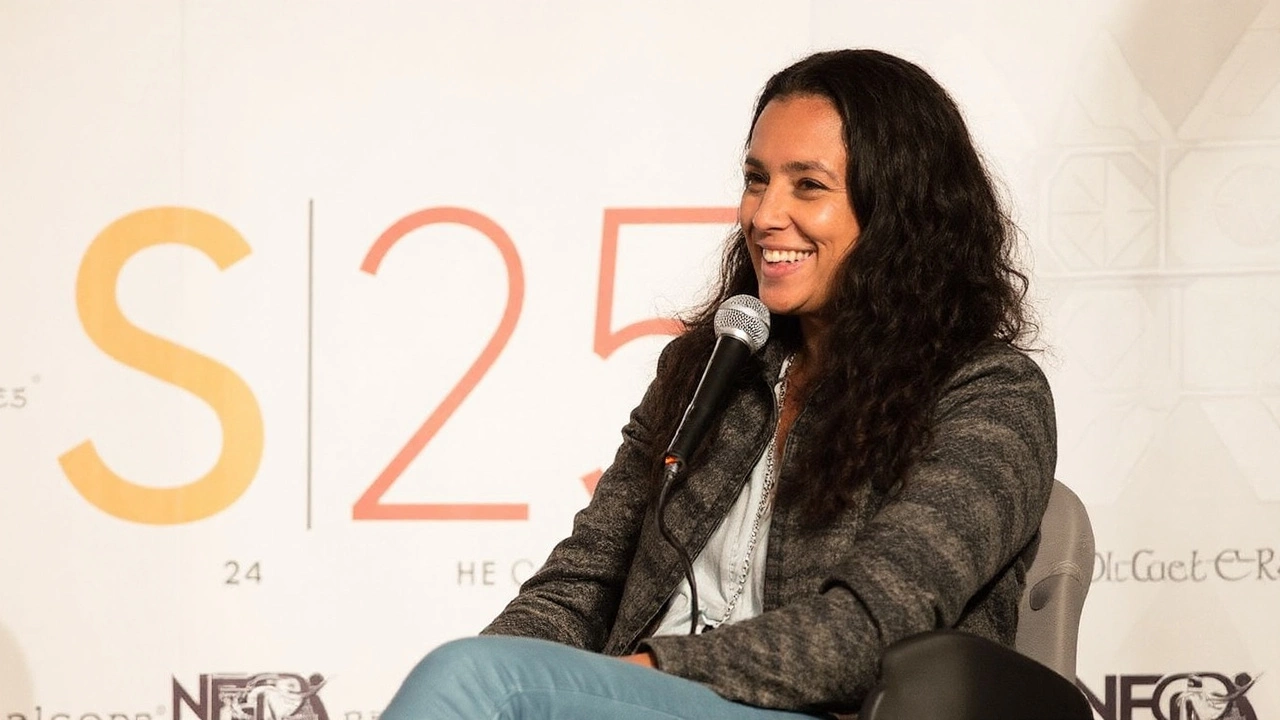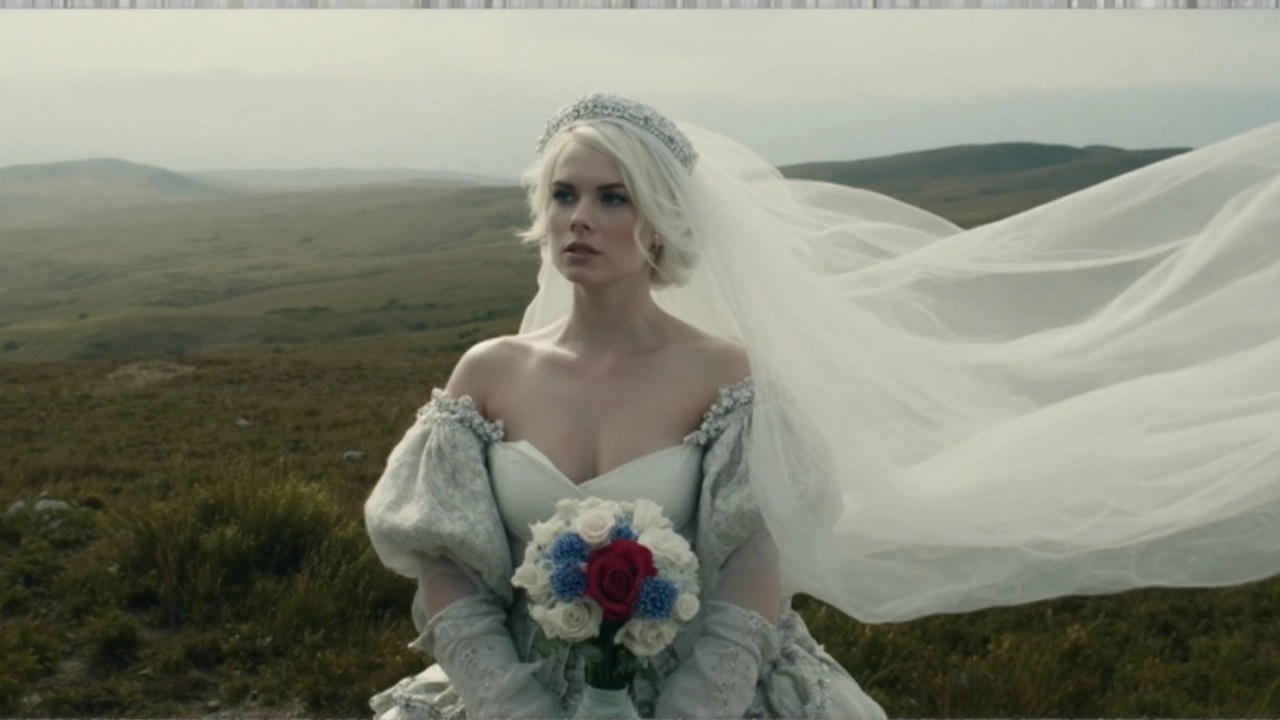Emily Brontë meets Charli XCX—and sparks fly
File this under things you didn’t think you’d see in 2025: a Wuthering Heights trailer cut like a pop fever dream, with the moors bathed in neon moods and Charli XCX’s pulse felt under the corsets. Emerald Fennell’s first look at her take on Emily Brontë’s classic landed on September 3, and it’s anything but polite. This is a heady, sensual remix of one of literature’s most turbulent love stories—less tea and lace, more desire and danger.
Margot Robbie and Jacob Elordi lead as Catherine Earnshaw and Heathcliff, and the trailer doesn’t tiptoe around their chemistry. Fennell leans into the obsession that defines these characters: longing glances turn into bruising kisses, storms hammer windows, and candlelit rooms feel charged and claustrophobic. The tone is daring, the imagery sharp, and the vibe unmistakably modern.
Visually, the piece is a jolt. Cinematographer Linus Sandgren—known for kinetic, high-gloss work on La La Land, First Man, and Babylon—gives the Yorkshire moors a bold, almost tactile texture. Those windswept hills still feel wild, but everything around them is heightened: saturated night skies, glimmering interiors, and costume details that pop against the mud and grit. It’s period design with a mischievous glint.
The sound of the trailer does a lot of heavy lifting too. Pairing Brontë’s brooding gothic romance with a contemporary pop current—fronted here by Charli XCX’s presence—signals the movie’s game plan: crack open a canonical text and let modern sensibilities flood in. It’s not the first time a classic got a pop engine (think Baz Luhrmann’s Romeo + Juliet or Sofia Coppola’s Marie Antoinette), but it’s rare to see Wuthering Heights framed with this much swagger.
Fennell, who vaulted from Promising Young Woman to the ferociously debated Saltburn, has built a reputation on needle-prick choices—beautiful to look at, uncomfortable to sit with. Early viewers have described this trailer and test footage as “aggressively provocative” and “tonally abrasive.” If you’ve seen Saltburn, that tracks. This isn’t a museum piece. It’s designed to get under your skin.

Bold vision, big cast, and a Valentine’s Day gamble
Robbie as Catherine feels like a smart collision of star power and character volatility. After Barbie, she’s choosing parts with bite, and Catherine’s contradictions—craving both status and wild, ruinous love—give her room to scorch the screen. Elordi’s Heathcliff, meanwhile, has the physical presence and cool menace the role demands. From Euphoria to Priscilla and Saltburn, he’s been building a gallery of intense, sometimes inscrutable men. Heathcliff is a natural fit.
The supporting cast is no less intriguing: Hong Chau (an Oscar nominee for The Whale), Shazad Latif (Star Trek: Discovery), Alison Oliver (Conversations with Friends, Saltburn), BAFTA winner Martin Clunes (Doc Martin), and Ewan Mitchell (House of the Dragon). It’s a mix of prestige and rising heat, with Fennell pulling from familiar collaborators and fresh faces alike.
Behind the camera, Fennell adapts Brontë’s 1847 novel herself. That matters. Her scripts are built to provoke—sharp, playful, and often savage. Expect her to dissect class, desire, cruelty, and the myth of “great romance” with a scalpel. If Catherine and Heathcliff have too often been softened in old adaptations, this version looks ready to put the thorns back on the rose.
Production comes via Warner Bros. Pictures, MRC Film, Lie Still, and LuckyChap Entertainment. The producing bench is stacked: Josey McNamara, Fennell, and Robbie lead, with Sara Desmond and Tom Ackerley executive producing. LuckyChap—the company behind Promising Young Woman and a force on Barbie—has quietly become one of Hollywood’s most risk-friendly shops. This project keeps that streak going.
Then there’s the release plan. The film opens internationally beginning February 11, 2026, and hits U.S. theaters on February 13—Valentine’s Day weekend. That’s a clever swing. It’s classic counterprogramming: a date-night slot for a story about romance that hurts. If you’ve read the book, you know Wuthering Heights isn’t hearts and chocolates. It’s obsession, class rage, and love as a slow-burn poison. Exactly the kind of “romance” you remember the next morning.
Fennell’s trailer makes its rules clear. The palette is dialed up. The bodies are hot. The language is frank. And the pop-meets-gothic soundtrack signals a refusal to play by period drama etiquette. Charli XCX’s footprint here feels intentional—her 2024 album Brat rewired the year’s pop conversation, and she’s no stranger to film tie-ins, having delivered a turbocharged cut for Barbie. Folding that energy into Brontë is a statement: this love story won’t behave.
Sandgren’s camera helps sell the rebellion. He’s the guy you call when you need images to thrum—dance floors in delirium, planets seen through cockpit glass, or in this case, moors that feel alive and accusatory. In the trailer, you catch glimpses of wind-whipped heather that look almost sculpted, interiors that feel too lush to be safe, and faces carved by candlelight like they’re being interrogated by the past. It’s lush and dangerous at once.
The online reaction so far? Split, but engaged. Some viewers are thrilled to see Brontë unbuttoned; others worry about style drowning substance. Fennell seems fine with that. Polarization is part of her brand, and it often translates to curiosity at the box office. If Saltburn proved anything, it’s that debate can be rocket fuel.
It’s worth remembering the long shadow of Wuthering Heights on screen. William Wyler’s 1939 film made the story a Hollywood legend, romantic but relatively restrained. The 1992 version with Ralph Fiennes and Juliette Binoche leaned into melodrama, while Andrea Arnold’s 2011 take went the other way—raw, tactile, and stripped down. Fennell’s approach looks like a fourth option: lavish, pop-scented, and deliberately destabilizing.
That could pay off thematically. Brontë’s novel is about more than tragic lovers; it’s about power, class, cruelty, and the way longing curdles when the world tells you you’re less than. Modern music and heightened visuals can make those tensions feel present rather than historical. If the trailer is a preview, expect the movie to poke at whose desire gets centered—and who pays for it.
The team hasn’t detailed a rating, runtime, or soundtrack lineup yet, and no festival plan has been announced. Given the scale and the February slot, this seems designed as a big theatrical play rather than a late-year awards push. That said, Fennell’s films tend to stick around in the conversation. If this catches, expect it to hover over the cultural winter the way Saltburn did over fall.
One practical note: the production design and costuming look expensive and intentional, blending period authenticity with theatrical flourish. Dresses read like armor; men’s tailoring teases status games. Props and sets don’t just decorate—they accuse, seduce, and frame. In a story where rooms are traps and the land is a character, those choices matter.
As for the leads, the trailer hints at two performances built to clash. Robbie’s Catherine isn’t an ingénue; she’s ambitious, impulsive, and cruel in ways that feel human rather than villainous. Elordi’s Heathcliff carries injury like a scar you can’t quite see, his anger coiled rather than shouted. If Fennell lets them be ugly—and the trailer suggests she will—the film might restore the anti-romance baked into Brontë’s pages.
Bottom line, this is the kind of swing that either lands with a crack or stirs up a storm. A classic text. A pop-forward soundtrack. A director who courts controversy. A cast that can go there. The moors haven’t looked this dangerous in decades, and that’s the point. Love, in this story, isn’t soft. It howls.
